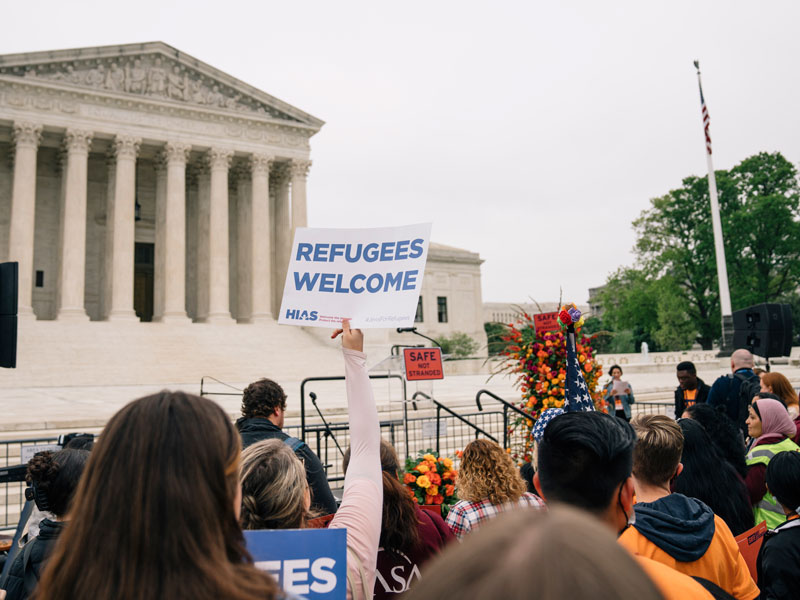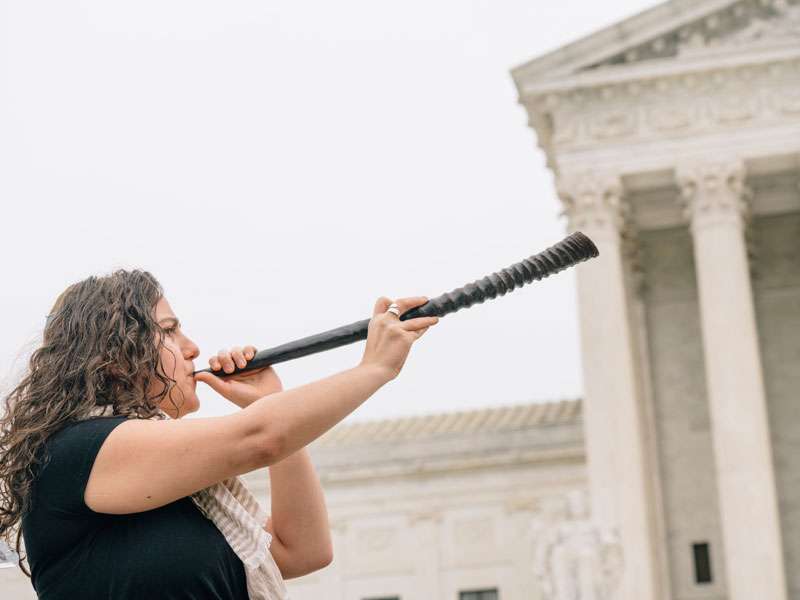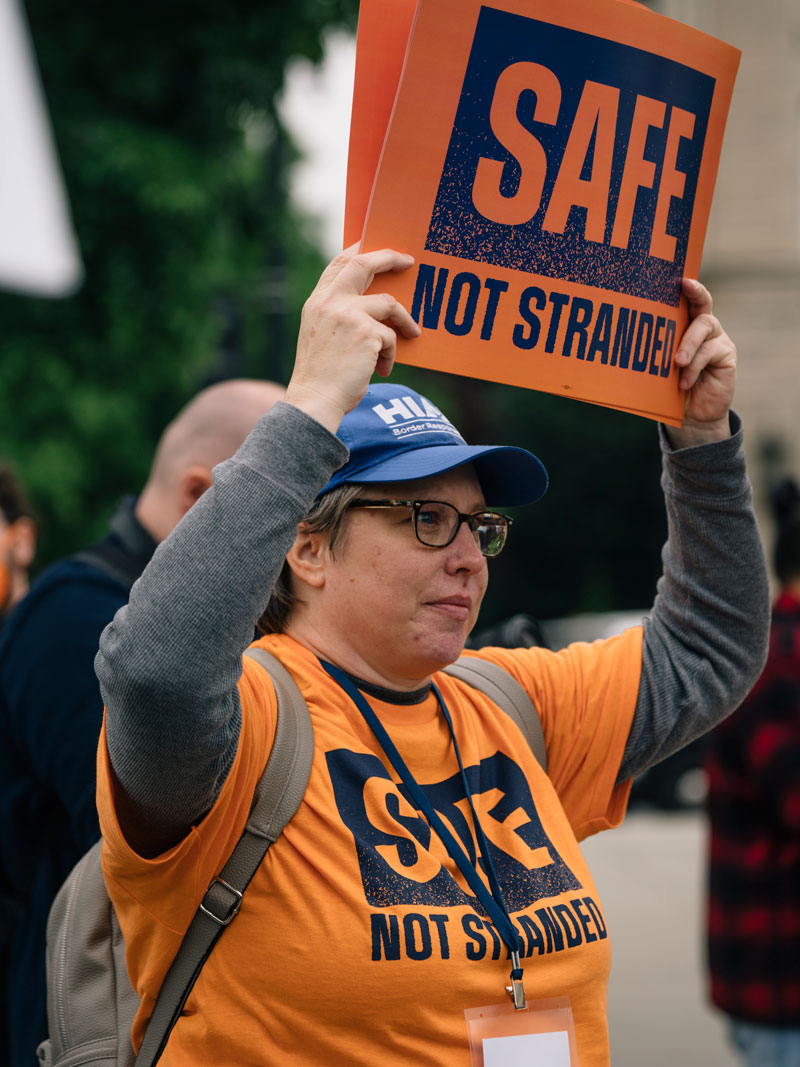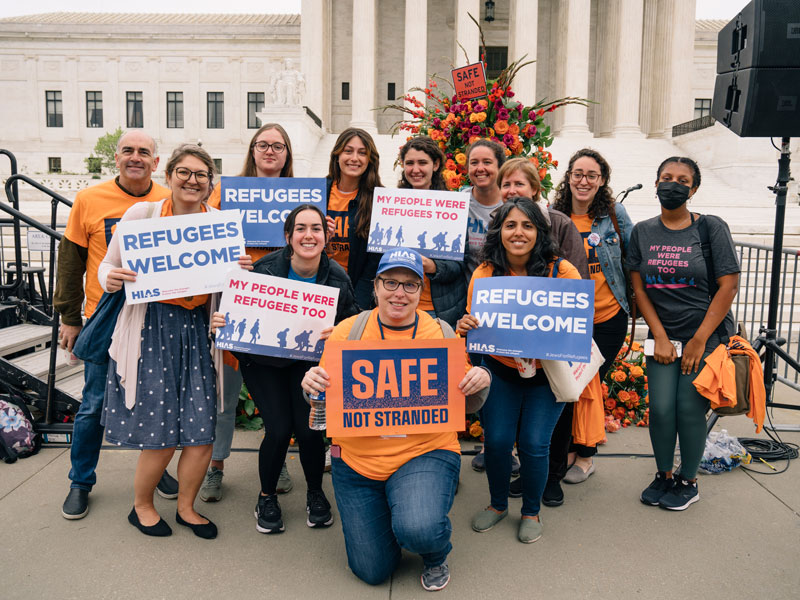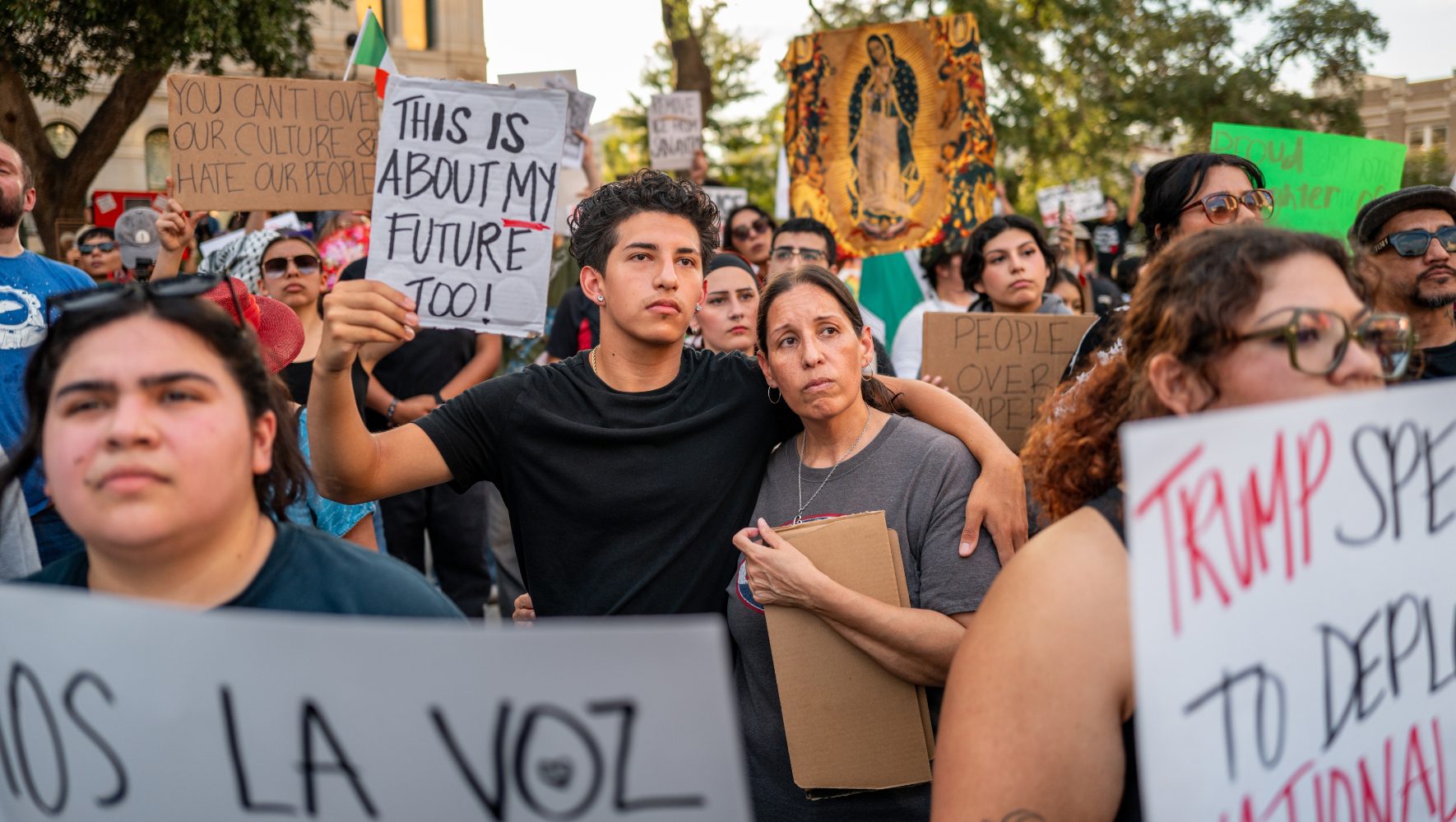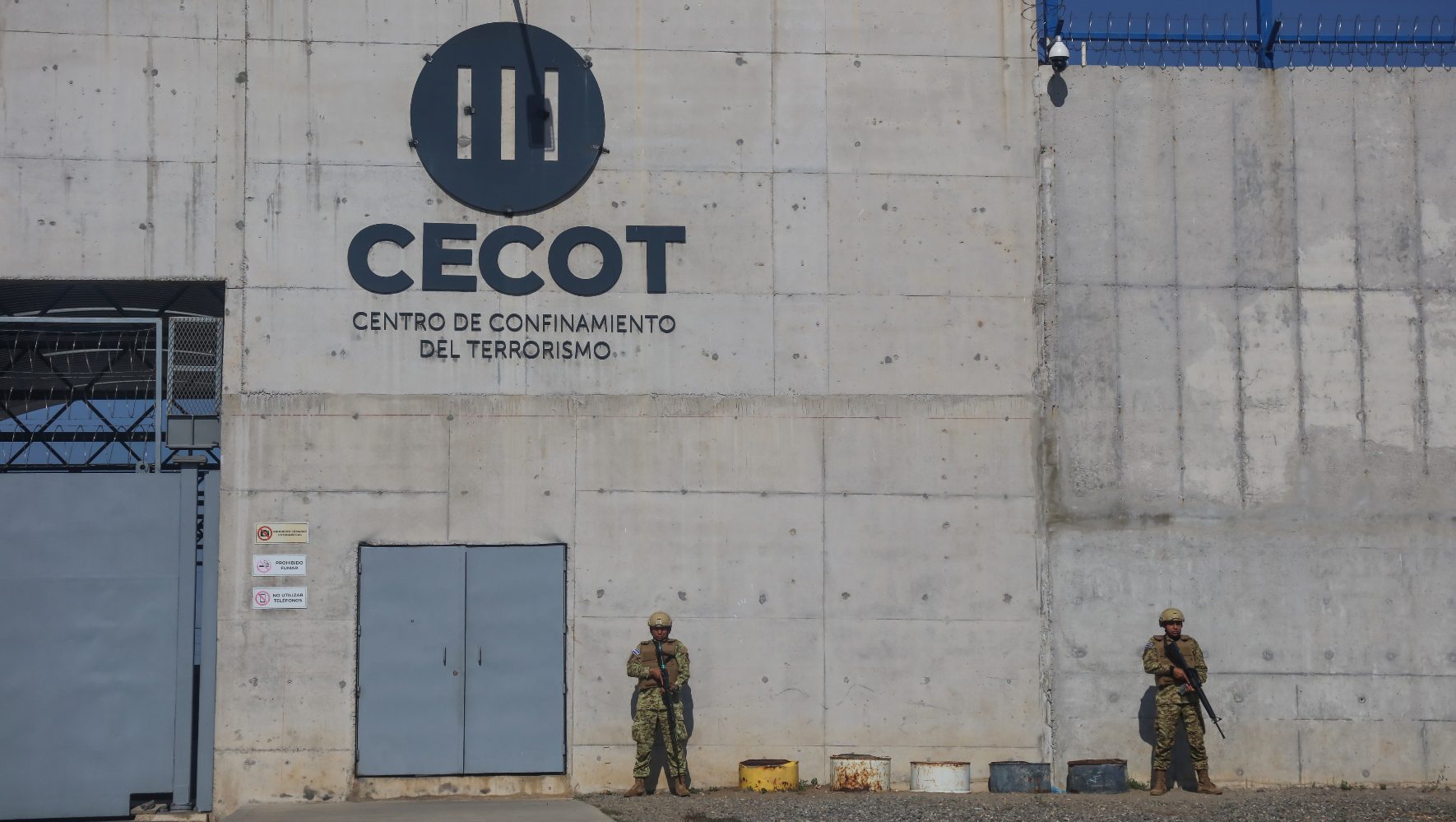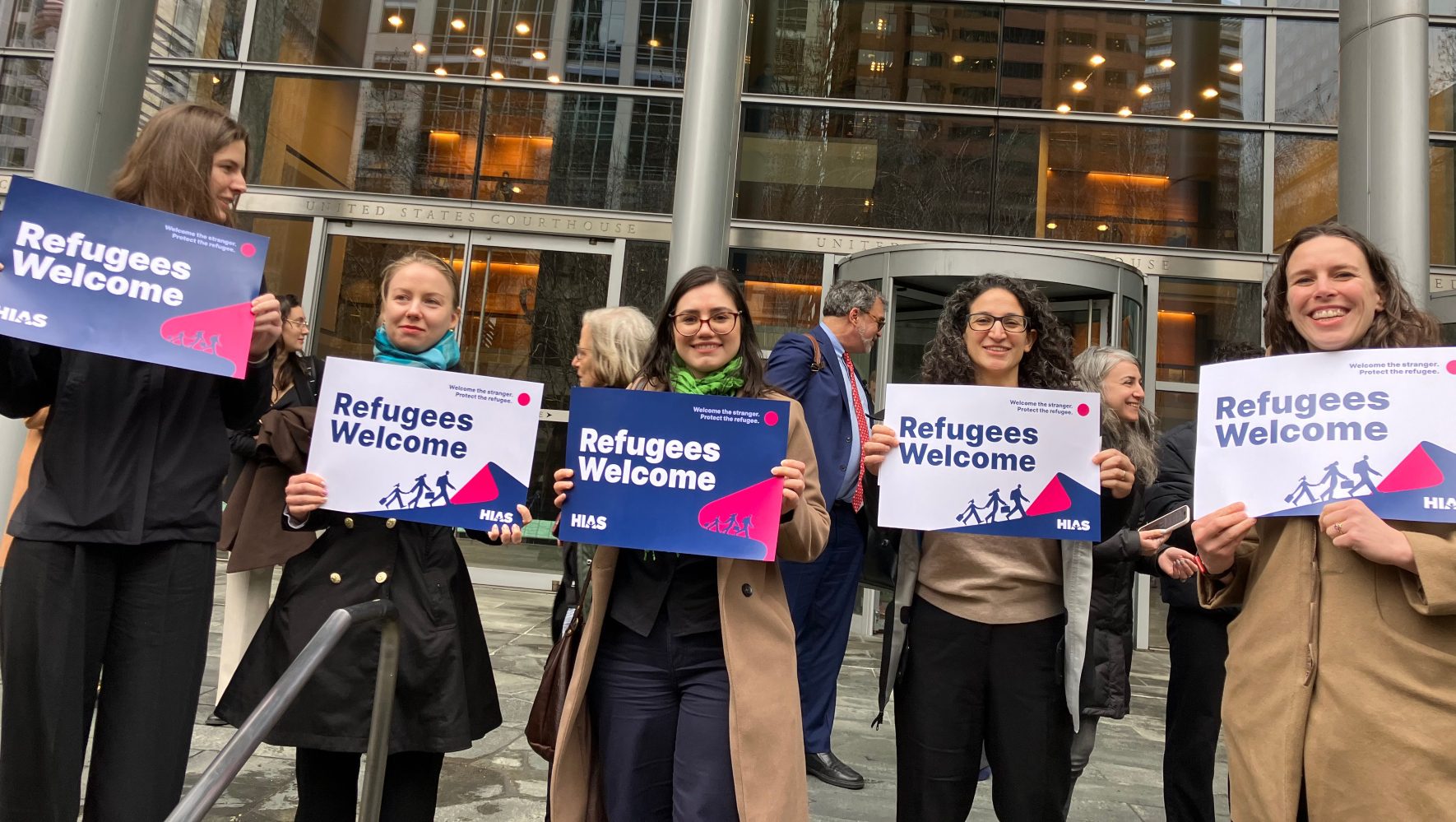Demonstrators Outside Supreme Court Demand End to MPP
By Sharon Samber, HIAS.org
Apr 26, 2022
On a gray Tuesday morning nearly 100 people gathered at the steps of the Supreme Court in front of a colorful tower of flowers.
At a rally organized by Safe Not Stranded, a coalition of more than 50 groups including HIAS, demonstrators called for the end of a policy that HIAS has deemed a humanitarian disaster. Organizers said the red and orange flowers stood as a memorial to the thousands who have suffered under the Migrant Protection Protocols (MPP). Inside the Supreme Court building, the justices were sitting to decide the fate of that program, also known as the “Remain in Mexico” policy, which requires asylum seekers to stay in Mexico while they wait for a hearing in U.S. immigration court.
Ever since the Trump-era policy was put in place, HIAS has argued that MPP is cruel and inhumane, and even published a report laying out a roadmap on how to dismantle the program. In continued protest of the policy, HIAS submitted an amicus brief in the current case. Tens of thousands of people have been affected by the policy and left stranded in Mexico, and more than 1,300 are known to have been victims of violent crimes in Mexico.
“MPP is a man-made crisis,” said Linda Corchado, the interim executive director of Las Americas Immigrant Advocacy Center in El Paso, Texas, a non-profit that HIAS works with. “How long must we wait before Americans find their moral compass?”
Just hours before oral arguments began in Biden v. Texas, rally organizers were imploring the justices to end MPP. “Remain in Mexico keeps people in danger,” said Sue Kenney-Pfalzer, HIAS’ director of the Border and Asylum Network. “We are hoping that the Supreme Court will do the right thing and be on the right side of history today.”
Amid chants of “Si, se puede” and “Refugees are welcome here” there were cheers as demonstrators waved signs, and even a band that played Haitian Creole songs about what immigrants are forced to leave behind.
Rabbi Hannah Spiro of Hill Havurah explained to the crowd how Jews use the shofar as a call to spiritual action. “The sound penetrates our hearts to wake us up from the status quo,” she said. “We stand here outside the Supreme Court for the power of this blast to reach the power inside that hall, to cry out it is time to pay attention.” Rabbi Stephanie Crawley of Temple Micah in Washington, D.C., then blew the shofar.
When President Biden came to office, he immediately halted MPP and in June Department of Homeland Security Secretary Alejandro Mayorkas disbanded the program. But the states of Texas and Missouri maintained that rescinding the policy violated both federal immigration law and the federal law governing the procedures that federal agencies must follow. U.S. District Judge Matthew Kacsmaryk agreed with the states and ordered the Biden administration to reinstate the policy. After the U.S. Court of Appeals of the conservative 5th Circuit declined to block that ruling, the administration went to the Supreme Court in August, but was required to resume enforcement of the policy while litigation continued in the lower courts.
In October the Department of Homeland Security issued a new decision ending the policy, concluding in its termination memo that there were “substantial and unjustifiable human costs” and inherent problems with the program that “no amount of resources can sufficiently fix.”
Although the legally dense arguments made before the court sometimes centered on the meaning of the words “may” and “shall,” the justices are ultimately deciding whether Biden has the power to end the program, not whether or not MPP itself is legal. A decision is expected near the end of June.
